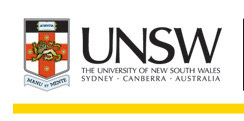By Tim Harcourt*
As a frequent flyer, particularly
around the Asia Pacific region, I, like many, awoke to the horror of more bad
news for Malaysian Airlines. This time Malaysian Airlines flight MH 17 was
allegedly shot down over the disputed Ukraine-Russia territory while making its
way from Amsterdam to Kuala Lumpur. This comes in the same year that the world
– particularly Australia – has been searching for MH 370 in the Indian Ocean
off the coast of Western Australia. Same country, same flag carrier, but a
disaster of potentially even greater proportion in global terms.
But what does Malaysian Airlines
double disaster really mean?
The first tragedy is human life of
course. Its early days but there have been reports that a large number of
Dutch, Malaysian and Indonesian passengers on board who have lost their life.
Australian Prime Minister Tony Abbott addressed the nation early this morning
to announce that 27 Australians were feared to have perished and offered his
sympathies to the families. Prime Minister Abbott had played a very public role
in announcing details of the search for the missing MH 370 whilst travelling in
China – so he must be very surprised at how much impact Malaysian Airlines has
been having on his own media agenda. The Prime Minister had just steered the
abolition of the carbon tax through a dysfunctional Senate but still hasn’t
passed his budget.
The second tragedy is one of
geo-politics. The world has been watching Vladimir Putin’s stand-off with
Ukraine in the ethnically Russian dominated east of the country but has thought
it could be hands off and narrow it to a regional dispute. Now this news puts
the cat amongst the pigeons over was it shot down, who did it (the Ukrainians
or Russian separatists) how and why? Memories of Korean Airlines being shot
down by the old Soviet Union comes flooding back. This latest incident now
drags Asia and the world into the Ukraine.
The third question is more about
economics. How will this affect Malaysia? How will it affect the ASEAN states
and the Asia Pacific more generally? Malaysian Airlines is Malaysia’s national
flag carrier and like all flag carriers – its county’s ‘brand’. Like the UK has
BA, Australia has Qantas, Malaysia has MAS and for emerging economies having
your own airline is a mark of economic success. Now, MAS which was already
close to bankruptcy before MH 370 went missing could be facing a knock-out blow
with MH 17. This is a blow to Malaysian pride, ASEAN and the whole Asian region
which will have adverse effects on trade, investment, international education
and tourism. It harms Malaysia’s economic diplomacy and its aspirations to be a
significant player in ASEAN, APEC and on the world stage.
Is it the September 11 of this
decade? It’s too early to speculate whether it could be a game changer of
global geo-politics and the international economy, but in terms of the Asia
Pacific region, its Malaysia’s blackest day.
*Tim Harcourt is the J W Nevile
Fellow in Economics at the Australian School of Business, UNSW Australia in
Sydney and author of The Airport
Economist:













No Comments so far ↓
Comments are closed.